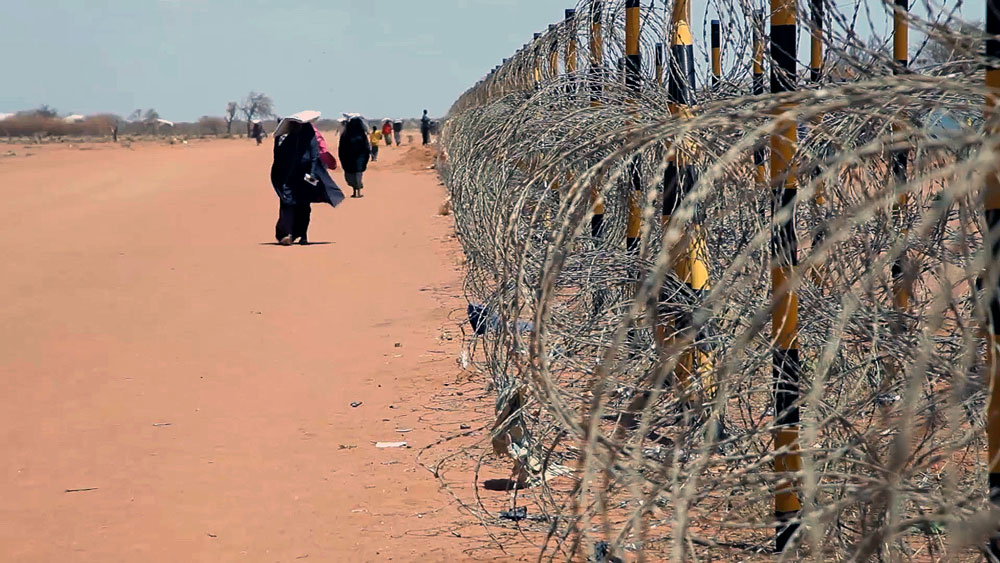Ahead of its global release on June 20th – World Refugee Day, filmmaker Asher Emmanuel takes us inside his first feature-length documentary “Warehoused” about the lives and experiences of protracted refugees in Dadaab, Kenya, the largest refugee camp in the world.
Documentary Drive: Can you tell me a little bit about how you initially got into documentary filmmaking? Has it always been a passion for you or was there a specific influence or moment you had in which you can remember recognizing the power of film to tell a story?
Emmanuel: In high school a good friend of mine got a hold of a camera and editing software and made short videos. I thought what he was doing was cool and started helping out on his shoots. In no time, I was making my own stuff and linked up with a community of filmmakers in Gwinnett County, [Georgia]. Early on, I was attracted to the transformative potential of storytelling to change or influence one’s perspective on a given topic or situation. Since then, I have tried to improve my storytelling craft and tell stories that are personal to me.
Documentary Drive: Your latest documentary “Warehoused” takes viewers inside the world’s largest refugee camp in Dadaab, Kenya. What motivated you to make a film about the camp and the individuals who live there?
Emmanuel: A good friend of mine, Matt Turner, had a non-profit organization in Kenya that helped provide clean water, and he had a passion for ‘warehoused’ or protracted refugees, which are refugees living in a camp for five years or more unable to return home due famine or war-torn conflict zones.
The host country they reside in forbids them from working, becoming citizens, and denies them freedom of movement. They are confined to stay in these camps by law, 100% dependent on foreign aid, and wait for their opportunity for resettlement to a first world country that almost surely never comes.
He wanted to make a documentary that focused on these forgotten people so we developed that idea, but we needed a producer to help us find the funding. I met Vincent Vittorio through a mutual friend and together we worked on this passion project to make it a reality.
Documentary Drive: Can you describe one of the challenges you faced during production?
Emmanuel: I learned so much over the years of making this documentary. This is my first feature documentary and I come from a background of scripted content so the learning curve to making this piece pushed me beyond anything I have worked on before.
We had a lot of difficulties filming in Dadaab that restricted what we could capture, so we spent many months trying to find the story in the edit. I’ve learned that you got to trust the process of storytelling and that if you stick with it long enough and open yourself to the possibility that you don’t know how the story will go, wonderful inspiration can emerge.
Not to sound like a broken record, but it’s really about listening to the characters you have in your story and letting them drive the direction of the narrative.
Documentary Drive: Was there anything that surprised or inspired you most about your time in Dadaab?
Emmanuel: I think the immediate thing you realize as you are flying over the camp to the tiny airstrip in Dadaab is just how massive the camp is. It stretches about 50 square miles, which is about the size of Bristol, and population estimates hover around 500,000 people. It’s really a small city in terms of population, and yet, Kenya doesn’t allow permanent infrastructure systems to be built such as sewage or homes. It’s really quite incredible to experience and hopefully the documentary lends some perspective to just how massive these protracted, so called temporary, refugee camps grow over the decades.
Documentary Drive: Finally, how do you hope “Warehoused” changes the way people see the plight of refugees in relation to their own lives?
Emmanuel: When you look at politics on a historical level I think vulnerable or marginalized people are often the first people to be targeted as scapegoats for whatever the problem of the day. I think fear is a powerful motivator and I think it’s politically expedient to paint a group of people with little to no political voice with a broad paintbrush rather than deal with your country’s complex economic-political reality of a given situation.
You get to shift the blame of the ills of your society onto an outsider or “other” and sideline having to look into the mirror and do the hard work of making a more just and charitable society. You can do this year after year, and as the situation worsens, you can use this as justification for your targeting of “x” group.
The goal of the documentary is that after spending time with refugees and their stories you can empathize with their journey and demand that our policy changes be more charitable.
To learn more about “Warehoused,” visit: warehousedthemovie.com. A list of upcoming screenings can be found here.


